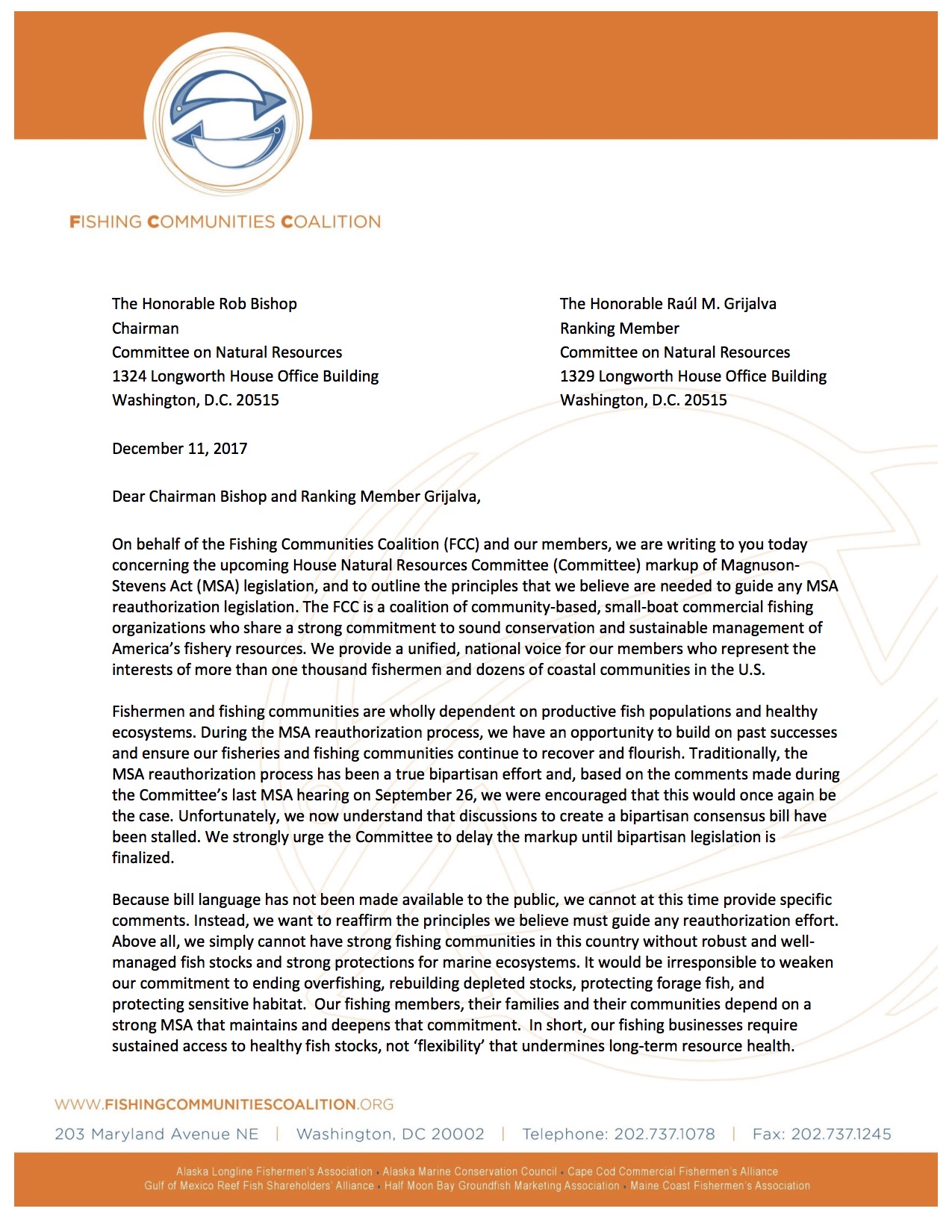Commercial Fishermen: Partisan House Bill Threatens Future Health of U.S. Fisheries
Fishing Communities Coalition Expresses Concern Over Deeply Flawed Magnuson-Stevens Act Legislation
Washington, DC – The nation’s leading organization of small-boat, conservation-minded commercial fishermen expressed serious concern with Magnuson-Stevens Act (MSA) reauthorization legislation (H.R. 200), which was reported out of the House Natural Resources Committee yesterday. The Fishing Communities Coalition (FCC), whose members represent more than 1,000 commercial fishermen, criticized a partisan process that resulted in bill language that would undermine decades of proven, sustainable fisheries practices.
“Rather than putting forward a bipartisan, consensus federal fisheries bill, H.R. 200 takes an outmoded approach to fisheries management that will have dire consequences for our fisheries, fishing communities and millions of Americans who enjoy seafood,” said Ben Martens of the Maine Coast Fishermen’s Association (MCFA), who testified before the committee in September. “It is deeply unfortunate that this legislation was marked up before a consensus, bipartisan agreement could be reached on legislation with such far-reaching impacts for fishing communities across the nation.”
“The Magnuson-Stevens Act is a success story – built on a foundation of cooperation and long-term thinking. In its current form, however, this bill makes several damaging changes to the MSA, including exempting some fisheries from annual catch limits and rebuilding requirements, while weakening strong core conservation provisions,” said Eric Brazer of the Gulf of Mexico Reef Fish Shareholders’ Alliance. “We look forward to working with legislators on both sides of the aisle in the House and Senate to address these serious concerns as the process moves forward.”
The FCC is concerned H.R. 200 would
Weaken National Fisheries Standards
- H.R. 200 does not constitute a genuine national fisheries policy, as it creates different rules for different regions. For example, when it come to the vital issue of catch shares, the bill bans new catch shares in some regions, requires a referendum to enact them in other regions and fails to address the issue in others. In FCC’s view, the same rules should apply nationwide
Undermine Accountability
- H.R. 200 exempts some fisheries from annual catch limits and rebuilding requirements – and overall weakens the strong conservation provisions that are the bedrock of the MSA.
- H.R. 200 seeks to give recreational fishermen more access to fish, but does not require them to be accountable for what they catch. FCC has proposed mandatory reporting so that managers know how many fish were taken.



